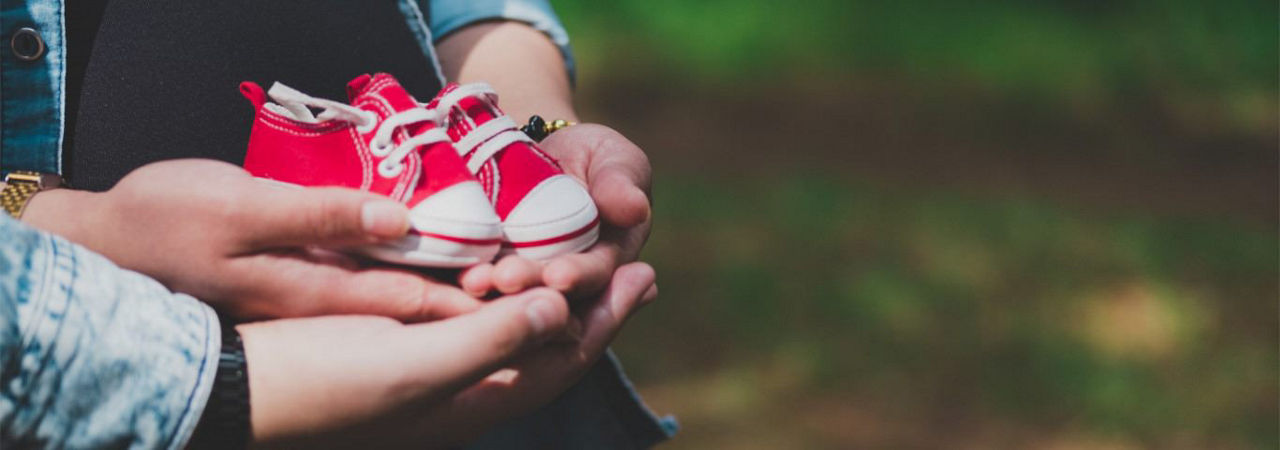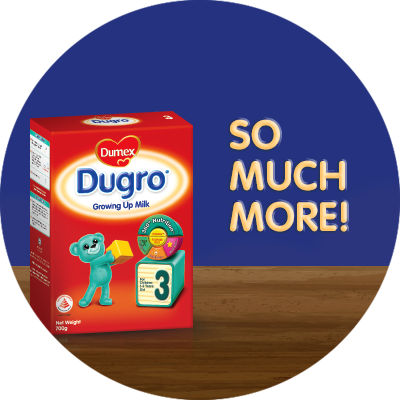Breastfeeding is the best for babies and a healthy diet / maternal nutrition is important when breastfeeding. A decision not to breastfeed can be difficult to reverse. Infant formula is suitable from birth when babies are not breastfed. It is recommended that all formula milks be used on the advice of a doctor, midwife, health visitor, public health nurse, dietitian, pharmacist, or other professional responsible for maternal and child care and the financial implications should be considered. All preparation and feeding instructions should be followed carefully as inappropriate preparation could lead to health hazards.
Knowing Your Child's Athletic & Fitness Personality
Every child has a different fitness personality based on personality traits, genetics, and athletic abilities. It is also a combination of your child's attitude towards participation in sports and other physical activities, particularly as they get older. To reap the benefits of regular exercise, parents would need to factor in their child’s fitness personality, age and particular health conditions (if any). From there, you can plan your child’s physical activities accordingly.
1. THE NON-ATHLETE
For children who may lack interest in physical activity, athletic ability, or both — they are likely to need your help as a parent to encourage them to stay physically active. By the age of 6, they are aware of these differences and some may have experienced teasing or bullying which made them not want to participate in sports and exercise in the first place. The main concern is not quitting one activity, but rather choosing to abandon all physical activity altogether. Instead of instructing them to exercise, parents should play an active, encouraging role by exercising alongside their child to motivate them to stay active.
Apart from that, older school-age children are more susceptible to inhabiting this type of fitness personality due to increasing exposure to screen-time entertainment and e-learning. Start with recreational activities that both parents and kids can participate together, such as walking and jogging, hiking or cycling at nature parks. A great way to instil a positive attitude towards regular exercises is to incorporate at least one physical activity into your child’s daily routine. Over time, they will notice the physical benefits of exercising and may even start exercising without their parents prompting them.
Dumex Mamil Gold Stage 5 is primarily formulated to support the overall growth and development for older children aged 6 years old and above.
2. THE CASUAL ATHLETE
Some children prefer to stay active without the need to participate in competitive sports. They may get discouraged in a competitive athletic environment where winning is the main goal. Children with this type of fitness personality have different objectives and expectations of sport compared with young athletes. They generally view that sport is fun and can be enjoyed regardless of the result.
According to a study involving teen athletes, the findings revealed that the fear of failure and a child’s concern about not performing well may be the main sources of stress and anxiety in children when it comes to sports1. In other words, it is possible your child may share feelings and concerns similar to the adolescent athletes in the study, leading them to avoid competitive sports. Nonetheless, this does not mean that parents are not allowed to challenge their children to friendly game matches indoors! Arrange a fun-filled family game of table tennis at home by setting up a net and posts on your dining table. Not only is this an effective method to get “casual athletes” up and about, but it will also create a stress-free environment that the whole family can stay active and enjoy.
3. THE ATHLETE
Children who are naturally athletic and are committed to a sport or activity are likely to increase practice time and can adapt to the intensity of competition. Do what you can to make it easy for your child by providing the necessary equipment and workout clothes. It gives them more confidence to carry out their favourite sport activities.
While it’s good to support your child’s passion for sport, it's equally important to ensure that they do not neglect their studies and schoolwork. They should also get enough rest to avoid physical burnout. Meanwhile, let your child try out new things and enjoy a variety of physical activities which may offer a break from their sport practice sessions. For example, schedule a family canoeing trip to relax and unwind while enjoying the quiet waters underneath and the surrounding lush spread of greenery.
If you understand where your child is coming from in terms of temperament, physical strengths and limitations and fitness types, you'll have an easier time narrowing down which activity is comfortable for your child, helping them acquire the adequate amount of exercise needed according to their age. Most of all, they should be able to find enjoyment in staying active and healthy. There are kids who want to take sports to a professional level, while others are perfectly happy with being casual participants.
Regular exercise promotes healthy growth and development in children. As your child requires more energy throughout the day, their nutritional needs will naturally increase. Introducing Dumex Mamil Gold, the milk formula that is trusted by generations. With milk from Europe & New Zealand, Dumex Mamil Gold is naturally sourced and contains no artificial colourings, added sucrose and GMO.
Dumex Mamil Gold also contains more than 30 nutrients including DHA, calcium, vitamins D & E and zinc. Vitamin E is an antioxidant that helps protect the cells in your child’s body2, which matters a lot when it comes to sports. Nutrients like calcium, and vitamin D will also do wonders for the more active little ones, helping to support development of strong bones, calcium absorption and improve bone strength3.
Discover our range of Dumex Mamil Gold available in Dumex Mamil Gold Stage 3, 4 and 5, catered for your growing child.
For more information, visit https://www.dumex.com.sg/products today!
REFERENCES:
Sagar, S., Lavallee, D. & Spray, C. M. (2007). Why young elite athletes fear failure: Consequences of failure. Journal of Sports Sciences, 25(11), 1171-1184, DOI: 10.1080/02640410601040093
Gavin, M. L. (2014). Vitamins. KidsHealth. Retrieved May 26, 2020, from https://kidshealth.org/en/kids/vitamin.html
Moreno MA, Furtner F, Rivara FP. (2012). Vitamin D and Bone Health. Arch Pediatr Adolesc Med. 2012;166(7):684.


Ask Our Careline
Whatever’s on your mind, we’re here to help




